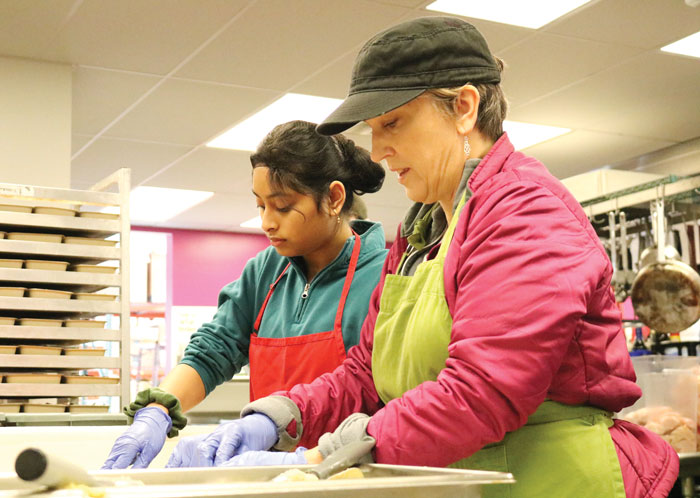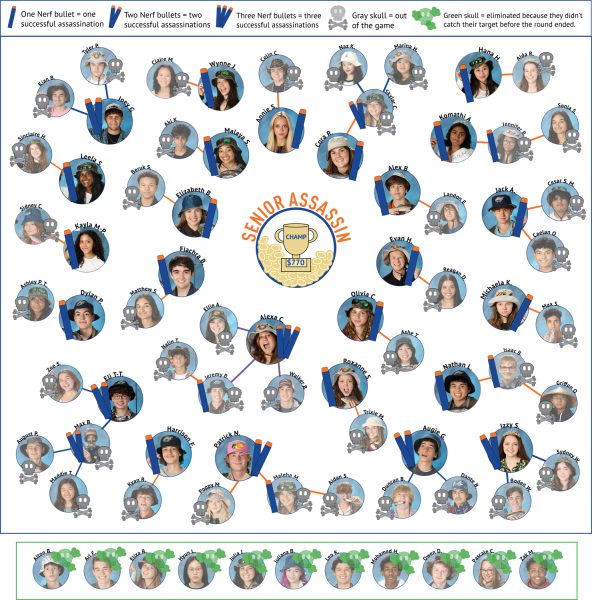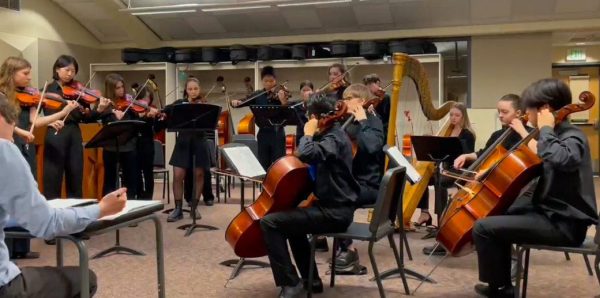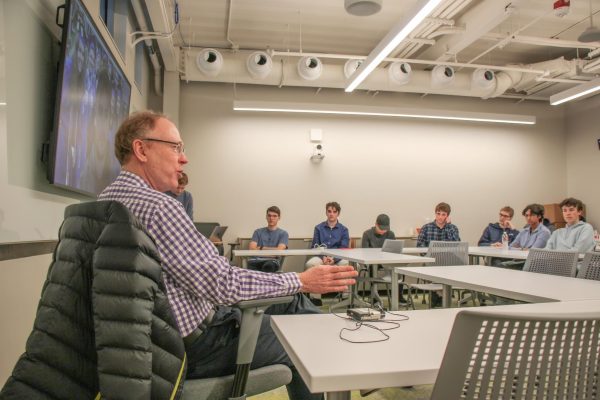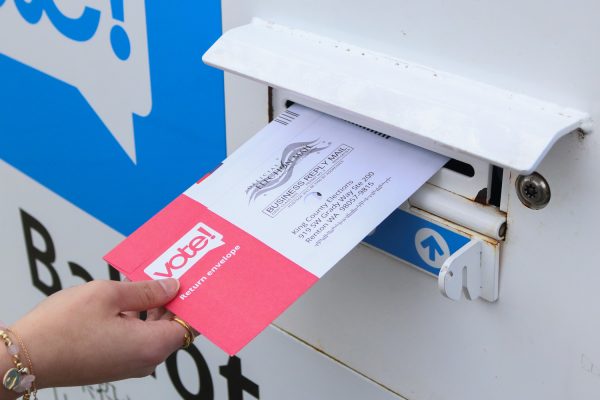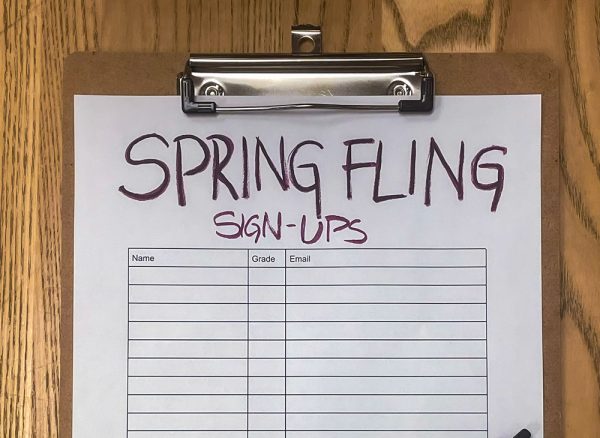Does this Count?
Confusion around service requirements prompted students to consider possible changes
Photo: Photo: Will Turner
Junior Navya Mangipudi and history teacher Abigail Hundley work on service day. Some students are looking to change service requirements.
When senior AJ Rossbach received a flyer calling for volunteers at the Big Climb — an event supporting the Leukemia and Lymphoma Society — she knew at once that she wanted to sign up. Last summer, Rossbach attended a firefighting program and learned about the many carcinogens firefighters are exposed to in their line of work, so the issue of cancer felt especially important to her. When Rossbach tried to log her service hours from the event, however, she discovered that they didn’t qualify due to the event being a fundraiser.
Many students, at some point time at University Prep, realize that a volunteer event they participated in won’t count for service hours due to confusion about what the service requirements are and why. This confusion around service requirements prompted Rossbach, along with senior Jake Zikan, to take a closer look at the service requirements at UPrep and consider ways in which they could be changed.
One concern Rossbach and Zikan share regarding service requirements is the lack of clarity as to what qualifies for service hours.
“I feel like I just don’t really know what the requirements are. If you look online, it’s super vague,” Rossbach said. “Where will the school draw the line between what they will accept hours for, and what they won’t?”
According to the UPrep website, in order for service hours to qualify, they must be “completed in direct service to a local organization whose primary purpose or activity is community service.”
Associate Director of Diversity and Community Jill Leahy, who oversees the service program, thinks the current requirements are sufficient, but encourages students to contact her if they have further questions.
“I think the requirements are pretty specific,” Leahy said. “I am still in the learning process but happy to help as much as possible. I am always happy to answer questions and provide support.”
Zikan feels that, in addition to being confusing, the current service requirements are too narrow with the school requirements stating that service must be completed at an organization whose “primary purpose or activity is community service.”
“[The requirement] felt really limiting because there are a lot of organizations who are still helping people around Seattle and contributing to the greater good, but, because their purpose isn’t primarily service, they don’t get counted as service hours,” Zikan said. “It seems like it’s discouraging working with a lot of organizations that are really helping a lot of people. I just felt that’s sort of unfair.”
After Rossbach’s experience with the Big Climb, she feels that service requirements should be widened to include fundraisers.
“I was frustrated because I wanted to [participate] anyway. … I just assumed that my ten hours of work would be counted as service hours, but apparently they won’t, ” Rossbach said. “It’s a fundraiser for a group of people that are trying to stop cancer and help people that have cancer. How doesn’t that count?”
According to Leahy, fundraising doesn’t count for service hours since it it not directly helping a community.
“We are coming from a lens of doing direct service to gain understanding of why community service is so important,” Leahy said. “The reason fundraisers don’t count is because, although fundraisers help support organizations, they are also geared towards people who can contribute financially.”
Though Leahy is now in charge of overseeing service this year, in previous years, service was managed by fine arts teacher Dana Bettinger. Leahy feels that this change in leadership provides an opportunity to review the current service requirements and make possible changes.
“As a school, it’s important that we continue to reflect on what we are doing well or what we need to work on,” Leahy said. “There are definitely areas to improve service, and it has been great to hear feedback from both upper school and middle school students on what would be more meaningful and impactful and how to make service more engaging.”


